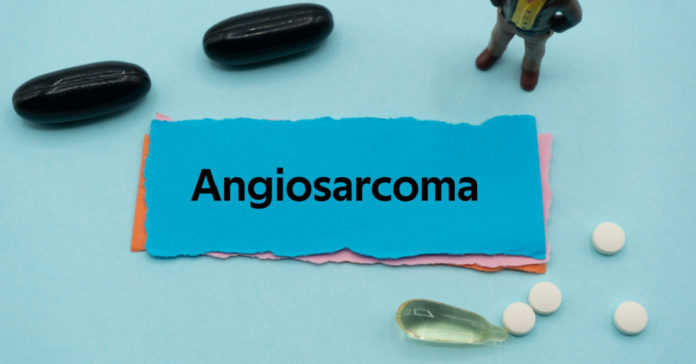Overview
Cancers are of numerous types. But each of them has its specific symptoms which you can look out for. It is vital to remain aware of the signs that the body may give and the treatment options available in healthcare so that you know what to do at the incidence of the condition. This blog is a comprehensive guide on angiosarcoma, its symptoms, causes, and treatment options available.
What is Angiosarcoma?
Angiosarcoma is a rare kind of cancer that develops in the lining of blood or lymphatic vessels anywhere in your body. However, it typically manifests on the head or neck, particularly the scalp and face. It can also develop in the liver or heart tissue or in your breast’s skin.
What are the Symptoms of Angiosarcoma?
The symptoms of the condition depend upon the location of the cancer. The most typical symptoms are mainly shown on your skin. They are:
- A purple patch that resembles a bruise
- Persistent sore that gets worse over time
- A region that bleeds when touched or jolted
- A soft mass that is visible or can be felt
The symptoms are less visible if the angiosarcoma is in the deep tissue, such as your liver or heart. But the pain could be experienced when it grows beyond a particular level. A physician may be able to feel the growth as it grows.
When to see a doctor?
You may have to visit the healthcare provider if you observe the symptoms mentioned above in your body.
What are the Causes of Angiosarcoma?
Angiosarcomas frequently have unknown causes. However, some factors may increase your risk of contracting it:
- Radiation treatment: Angiosarcoma risk may rise after radiation therapy for cancer or other disorders. Even though it is not very common, it can happen in rare cases.
- Swelling brought on by damaged lymph vessels: Lymphedema is swelling due to a buildup of lymph fluid. When the lymphatic system becomes obstructed or injured, it occurs. When lymph nodes are removed during surgery, lymphedema can result. This is frequently carried out during cancer surgery. When there is an infection or other disorders, lymphedema can also occur.
- Exposure to chemicals: Several chemical substances, including arsenic and vinyl chloride, may lead to liver angiosarcoma.
- Inherited syndromes: Angiosarcoma risk can increase in those born with specific gene mutations. Examples include the mutations in the BRCA1 and BRCA2 genes that lead to various diseases.
What Diagnostic Methods Help Detect Angiosarcoma?
Your healthcare provider will perform a physical examination to determine if you have any lumps or lesions that indicate a potential angiosarcoma. You’ll probably undergo a few more tests, including imaging tests like MRI, CT, or PET scan, to detect the position and size of the tumour. These tests will also help the doctor understand if cancer has spread to other parts of your body.
A biopsy, in which the physician removes a minor tissue sample, may support the diagnosis. The sample will be sent to a laboratory for analysis.
What are the treatment options for angiosarcoma?
The best course of action for any patient depends on the location, size, and extent to which the cancer is spread. Radiation, chemotherapy, and surgery are all possible forms of treatment.
The primary treatment is frequently surgery. The aim is to remove the entire cancer and some surrounding healthy tissue. If cancer has spread to other areas of your body or is too large, it may not be an option.
In cases where surgery is not suitable, the healthcare provider may use X-rays and other powerful radiation beams to kill or slow cancer cells’ growth. This method is frequently utilized to eliminate any remaining cancer cells following surgery.
Chemotherapy employs substances that are ingested or injected into a vein to kill or inhibit the division of cancer cells. If you cannot have surgery, this can also be an option. It can be combined with radiation therapy.
Targeted medication therapies target particular compounds found in cancer cells and work by obstructing these substances. If the angiosarcoma is advanced, targeted medications may be possible for treatment.
Another treatment option is immunotherapy. It fights cancer by activating the immune system. Because cancer cells produce proteins that aid in their concealment from immune system cells, your body’s immune system may fail to combat your cancer. Immunotherapy helps that process to work. This treatment method may be a viable strategy for treating angiosarcoma.
What are the ways to prevent angiosarcoma?
Avoiding the risk factors connected to angiosarcoma is the best method to prevent this malignancy. Not all risk factors are preventable. For example, radiotherapy used to treat other illnesses and hereditary predispositions cannot be avoided. However, you can lower your risk by using sunscreen on your skin and avoiding substances like vinyl chloride, arsenic, or thorium dioxide.
Conclusion
Angiosarcoma is a rare but deadly cancer that can affect your lymphatic and blood vessels. The skin of the head and neck is where it is most frequently found. Skin angiosarcomas can resemble a bruise or lesion that doesn’t go away over time. This illness is at risk from several factors, including genetics, radiation exposure, and exposure to specific chemicals. The likelihood of survival is decreased since this cancer can spread fast to other organs and tissues. However, more recent angiosarcoma treatments, like immunotherapy and targeted drugs, show promise and may improve patients’ prognoses.
Frequently Asked Questions (FAQs)
How fast is the growth of angiosarcoma?
Angiosarcoma is a fast-growing and aggressive cancer. It affects blood and lymph vessels.
How is chemotherapy administered to patients?
Chemotherapy is usually administered through injections or orally.


















